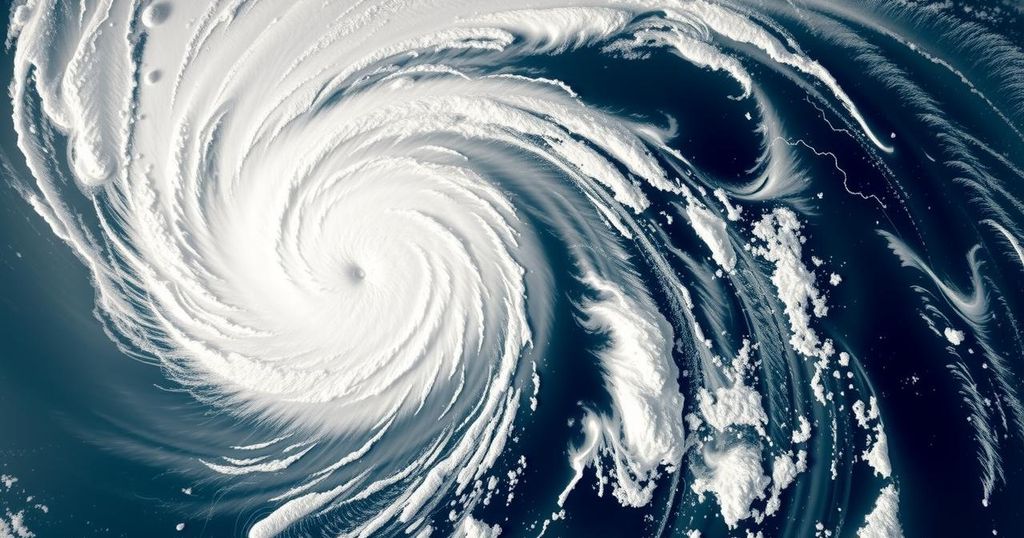Cyclone Chido Engulfs Mayotte, Paving Path of Destruction Towards Africa
Tropical Cyclone Chido has caused significant damage in Mayotte, with winds over 220 km/h. The cyclone is moving towards Mozambique, potentially affecting millions and prompting emergency measures in nearby nations. The cyclone exacerbates existing vulnerabilities to climate change in Southern Africa, raising concerns about humanitarian crises.
The French territory of Mayotte, located in the Indian Ocean, has experienced severe devastation due to Tropical Cyclone Chido. With winds exceeding 220 kilometers per hour, the cyclone has significantly affected the local population of approximately 300,000, damaging infrastructure and displacing residents. Mayotte Prefect Francois-Xavier Bieuville remarked on social media that this is the most violent and destructive cyclone the island has faced since 1934. Though no immediate casualties have been reported, the aftermath is considerable, with many individuals losing their homes.
Currently, Mayotte remains under a red alert, urging residents to seek shelter while rescue efforts are underway. French Interior Minister Bruno Retailleau acknowledged the severity of the damages and confirmed the mobilization of emergency services from France and the adjacent territory of Reunion. Thousands of residents are reported to be without power, and structures have been destroyed across the islands.
As the cyclone progresses toward Eastern Africa, particularly Mozambique, its impact is expected to grow. Mozambique’s disaster agency warns that around 2.5 million individuals in the northern provinces may be affected. Nearby, Malawi and Zimbabwe are also bracing for potential flooding and evacuations, emphasizing the cyclone’s widespread threat. Previous cyclones in the region have resulted in considerable loss of life and have underscored the vulnerability of Southern Africa amidst climate change challenges, significantly complicating local humanitarian crises.
Tropical cyclones, particularly during the cyclone season that runs from December to March in the southeastern Indian Ocean, present grave threats to the Indian Ocean islands and southern Africa. Cyclone seasons have been increasingly aggressive in recent years, escalating natural disasters such as flooding, landslides, and outbreaks of waterborne diseases like cholera, particularly in impoverished nations that contribute minimally to climate change yet suffer significantly from its impacts. The historical context in which Cyclone Chido strikes includes severe events in the past, such as Cyclones Idai and Freddy, which resulted in considerable fatalities and devastation across Mozambique, Malawi, and Zimbabwe.
In conclusion, Tropical Cyclone Chido has wreaked havoc on Mayotte, leading to extensive damage and displacement. As the storm continues its trajectory toward Mozambique, the humanitarian implications are profound, with millions at risk. The ongoing cycle of cyclones in the region highlights the critical need for effective disaster management and climate adaptation strategies to protect vulnerable communities. This disaster serves as a stark reminder of the increasing impact of climate-related events on impoverished nations.
Original Source: www.voanews.com




Post Comment